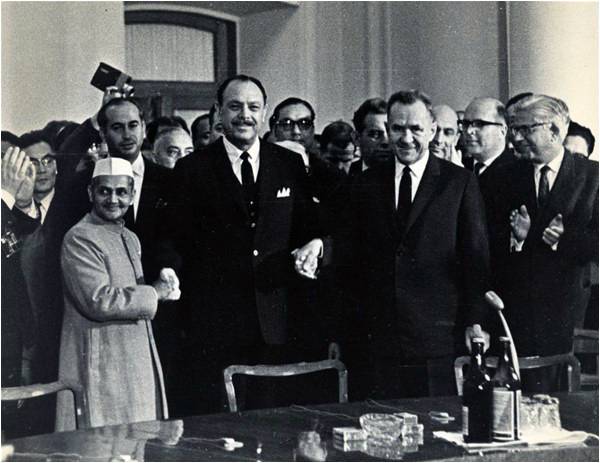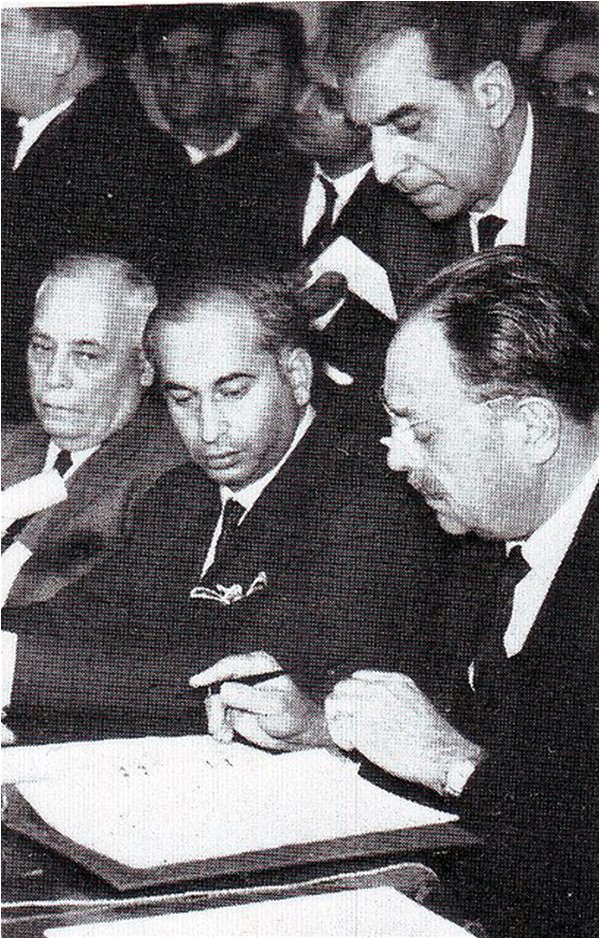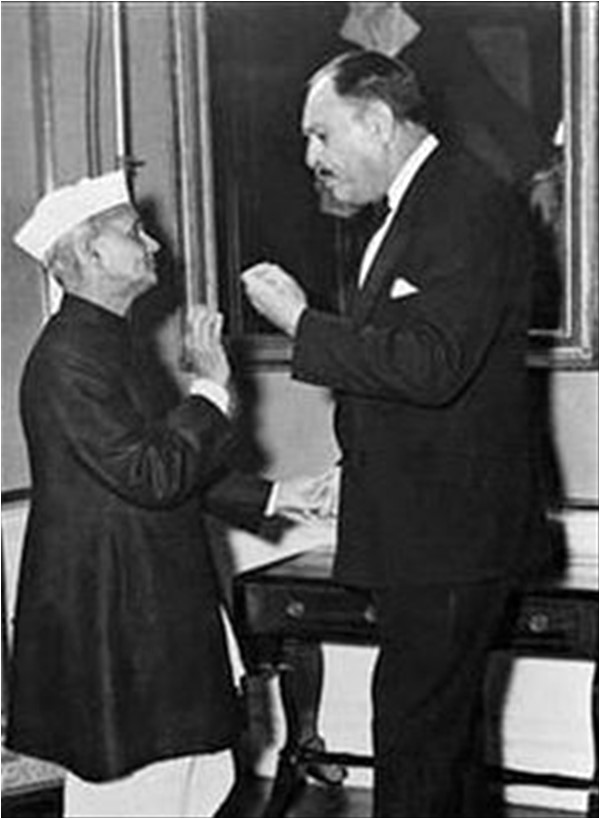
President Ayub Khan signed the Tashkent Agreement January 10, 1966, ending the 17-day war between Pakistan and India in 1965. This moment in history took place in Soviet Uzbekistan. The Pakistani delegation was split between those who were resigned to ending the war with as much good grace as could be mustered and those who preferred to leave without an agreement. An unhappy Ayub told his host Soviet Premier Alexi Kosygin in a meeting earlier on, that he did not want to shake hands with Indian Prime Minister Lal Bahadur Shastri, as he was undoubtedly aware of how its photographs would go around the world. He had to back down, however, in deference to diplomatic norms. The next day, however, at an ice-breaker meeting between the two side, Ayub had to nudge Bhutto to clap after Shastri's speech. Bhutto had taken a hard line and had refused to agree to the proposals.


Amid these negotiations, it was Bhutto's birthday on January 5, and Commerce Minister Ghulam Faruque organised a small party for him. It did not improve the foreign minister's mood. And on January 11, the agreement was signed. It was at this juncture that Bhutto indicated a desire to separate himself from his mentor. It was only a matter of time before he stood in opposition to Ayub and formed his Pakistan People's Party. Ayub Khan was never the same after signing the Tashkent Agreement.
In this image, Commerce Minister Ghulam Faruque, Foreign Minister ZA Bhutto and Foreign Secretary Aziz Ahmed look on as the agreement is signed. Indian Prime Minister Lal Bahadur Shastri died the same night of a heart attack. A member of the Pakistan entourage woke up the foreign minister and told him on the telephone: "The bastard is dead."
Still in his sleep, Bhutto asked, "Which one?"


Amid these negotiations, it was Bhutto's birthday on January 5, and Commerce Minister Ghulam Faruque organised a small party for him. It did not improve the foreign minister's mood. And on January 11, the agreement was signed. It was at this juncture that Bhutto indicated a desire to separate himself from his mentor. It was only a matter of time before he stood in opposition to Ayub and formed his Pakistan People's Party. Ayub Khan was never the same after signing the Tashkent Agreement.
In this image, Commerce Minister Ghulam Faruque, Foreign Minister ZA Bhutto and Foreign Secretary Aziz Ahmed look on as the agreement is signed. Indian Prime Minister Lal Bahadur Shastri died the same night of a heart attack. A member of the Pakistan entourage woke up the foreign minister and told him on the telephone: "The bastard is dead."
Still in his sleep, Bhutto asked, "Which one?"

